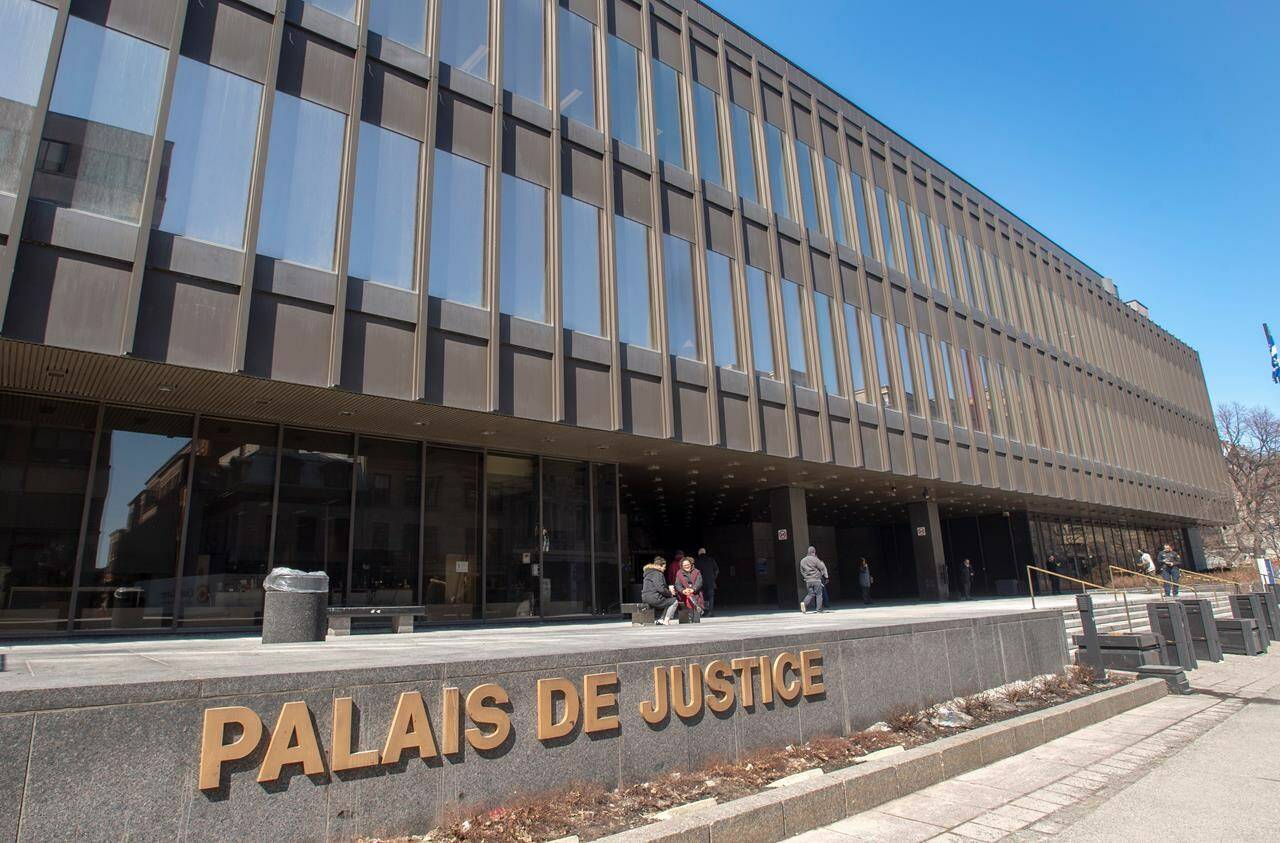An international aviation catering company and a Quebec recruitment firm allegedly lured foreign workers to Canada under false pretences and exploited them, according to a proposed class-action lawsuit.
The Immigrant Workers Centre in Montreal is seeking authorization to launch the suit against Laval, Que.-based placement firm Trésor and inflight catering company Newrest, along with several affiliated companies.
The workers centre is acting on behalf of more than 400 people since 2021 who it says were falsely promised they would be given work permits and legitimate jobs in Canada by Trésor — but were instead encouraged to work illegally.
“The defendants treated the members of the class like objects: controllable, disposable, replaceable and exploitable. These experiences were profoundly degrading and dehumanizing for the members of the class and undermined their dignity, their psychological security and their self-esteem,” says the request for authorization filed by lawyers with Montreal law firm Trudel Johnston & Lespérance.
“In particular, the express or implicit threats of deportation and criminalization wielded by the defendants terrorized the members of the class. Their irregular status — a situation orchestrated by the defendants despite the efforts of members to obtain legal permits — remains a profound source of stress and anxiety,” the application says.
Lawyers for the plaintiffs allege that Trésor recruited workers from Spanish-speaking countries, encouraging some to come to Canada as visitors. Others were already in Canada on visitor visas, the lawyers say.
“The members of the group were fraudulently encouraged to work during a ‘probationary period,’ a period during which the members had, in fact, no valid work permit. Trésor assured the group members that it was completely normal for them to start working in the meantime because the regulatory process for obtaining a permit had begun,” the proposed lawsuit says.
But few of the workers would ever be given permits, the lawsuit alleges.
Benoît Scowen, with the Immigrant Workers Centre, said a small number of the plaintiffs received permits after working for the companies for several months. Others, he said, worked for nearly a year without ever receiving a permit.
“What workers understood was that in order to obtain this work permit, they had to keep working on their visitor status and that they did not have the option to stop working and wait for their work permit to arrive,” he said in a phone interview, adding that many believed that if they were fired, they would be deported.
Most of the workers recruited by Trésor were placed at Newrest production facilities, where they prepared meals for flights leaving from the Montreal-Trudeau International Airport. The proposed suit alleges that Newrest was fully aware the workers did not have permits and that the vast majority would never get them.
“The defendants jointly took advantage of the vulnerability of the members of the class and the legal precarity that they created to enrich themselves. All the members of the class were defrauded, had their fundamental rights violated and suffered serious prejudice,” the application reads.
The workers, who were paid by Trésor, often received less than minimum wage, were not properly paid overtime hours and were not given workplace and health insurance, the suit says.
The suit also alleges that workers were not properly trained or equipped for the physical work they were required to do and that they were forced to labour in unclean and dangerous conditions.
Guillermo Montiel, the president of Trésor, said he hasn’t seen the court filing but is “stunned” by the allegations.
“We’re an agency that has operated completely legally since 2013. We have never offered a job to someone who doesn’t have permits,” said Montiel, who is named in the suit.
Newrest did not respond to a request for comment on Tuesday.
The lawsuit, which has not yet been approved by a judge — a required step for all class actions — is seeking unspecified damages from the companies.
Scowen said his organization’s legal clinic has been helping a growing number of workers who are facing similar situations since the federal government began in 2020 to allow people on visitor visas to transition to work permits without having to leave the country.
Foreign workers on closed work permits — which are tied to a single employer — can apply for a one-year open permit if they suffer abuse. But people who don’t have permits at all have little recourse when their employers mistreat them, Scowen said.
“This practice basically creates a new class of migrant workers who don’t have easy access to that existing protection mechanism, and this makes it a lot easier for employers to demand more of them, to further exploit them, to underpay them, to abuse them psychologically or physically,” he said.
This report by The Canadian Press was first published Oct. 3, 2023.
Jacob Serebrin, The Canadian Press

